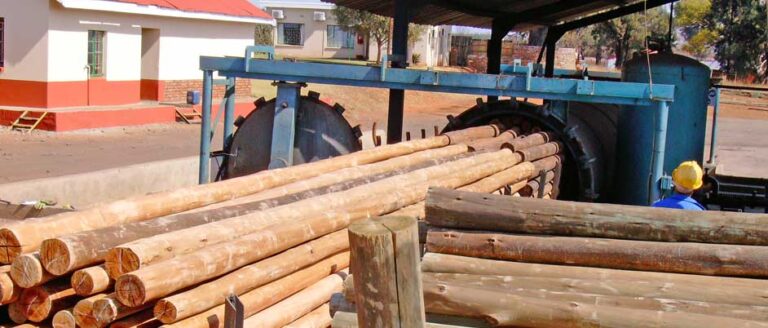In the world of treated timber, the phrase ‘cutting corners’ is not just an idiom but a stark reality that can have dire consequences. When it comes to ensuring the quality, durability, and sustainability of treated timber, the importance of SAWPA Certification cannot be overstated.
This certification, provided by the South African Wood Preservers Association, serves as a guarantee of compliance with industry regulations and standards, building trust and credibility with customers.
SAWPA Certification goes beyond mere compliance; it represents a commitment to environmental responsibility and sustainability. By adhering to strict guidelines and protocols, certified treated timber manufacturers contribute to the preservation of our natural resources and minimize their ecological footprint.
Furthermore, SAWPA Certification allows businesses to stay ahead of the competition by demonstrating their dedication to delivering high-quality products that meet the stringent requirements of the industry. For those who desire control over their timber procurement process, SAWPA Certification is an indispensable tool for ensuring the reliability and longevity of treated timber products.
Key Takeaways
- SAWPA Certification guarantees compliance with industry regulations and standards.
- Certified treated timber manufacturers contribute to the preservation of natural resources.
- SAWPA Certification ensures reliability and longevity of treated timber products.
- Offering SAWPA certified products demonstrates commitment to sustainable practices and aligns with the values of the target audience.
Understanding SAWPA Certification
SAWPA certification plays a crucial role in ensuring the reliability and quality of treated timber, thereby instilling confidence and peace of mind in consumers.
Timber treatment involves various preservation methods to protect the wood from decay, insects, and other forms of deterioration. SAWPA certification guarantees that the timber has been treated in accordance with industry standards and guidelines.
This certification ensures that the timber has undergone the appropriate treatment processes, such as pressure treatment or chemical impregnation, to enhance its durability and resistance to environmental factors.
By adhering to SAWPA certification, consumers can be assured that the treated timber they purchase meets the necessary requirements for quality and longevity.
This certification not only provides assurance but also helps in ensuring timber quality and durability, which is crucial for construction projects and other applications where reliability is paramount.
Ensuring Timber Quality and Durability
Ensuring the quality and durability of treated timber is paramount to its long-term effectiveness. Timber preservation methods play a crucial role in achieving this goal. SAWPA certification guarantees that timber has undergone a thorough inspection process to meet specific quality standards.
Here are three key elements of the SAWPA inspection process:
- Treatment Quality: SAWPA certification ensures that the timber has been treated using approved methods and chemicals. This guarantees that the wood will be protected from decay, insects, and other forms of deterioration.
- Penetration and Retention: SAWPA inspectors assess the depth of treatment penetration and the amount of chemical retained in the timber. This ensures that the treatment has effectively permeated the wood, providing maximum durability and protection.
- Quality Control: SAWPA certification involves regular audits and inspections of treatment facilities to ensure that all processes adhere to industry standards. This helps maintain consistent quality and prevents any compromise in the treatment process.
By adhering to these rigorous standards, SAWPA certification ensures that treated timber is of high quality and durability. This promotes sustainability and environmental responsibility by reducing the need for frequent replacement or repair of timber products.
Promoting Sustainability and Environmental Responsibility
Promoting sustainability and environmental responsibility in the timber industry involves implementing stringent quality control measures to ensure the long-term durability and effectiveness of treated timber products.
By adhering to the South African Wood Preservers Association (SAWPA) certification, timber manufacturers demonstrate their commitment to resource conservation and sustainable practices. SAWPA certification ensures that treated timber products meet specific standards in terms of their environmental impact, such as minimizing the use of harmful chemicals and reducing waste generation. Additionally, SAWPA certification encourages the use of timber from sustainably managed forests, thus promoting responsible forestry practices.
Moreover, promoting sustainability in the timber industry brings economic benefits, as it enhances the marketability and reputation of certified timber products, attracting customers who prioritize environmentally friendly choices.
Moving forward, compliance with industry regulations and standards is essential to maintain the integrity of SAWPA certification.
Wondering why SAWPA Certification matters? Gain comprehensive insight into its importance. Find Out More!
Compliance with Industry Regulations and Standards
Compliance with industry regulations and standards is of utmost importance in the use of treated timber.
Legal requirements for treated timber ensure that the wood has been treated in a way that meets the necessary quality and safety standards.
Non-compliance with these regulations can have serious consequences, such as legal penalties, damage to reputation, and potential harm to the environment and public health.
Legal Requirements for Treated Timber
Legal requirements for treated timber include the need for certification to ensure adherence to safety standards and regulations.
- Certification guarantees that timber has undergone proper treatment processes such as pressure treatment or chemical preservatives, ensuring its durability and resistance to decay, pests, and weathering.
- Treated timber offers numerous benefits, including increased lifespan, reduced maintenance needs, and enhanced structural stability. It is an ideal choice for outdoor applications, such as decking, fencing, and landscaping.
- In addition, certification ensures that treated timber meets specific industry standards and regulations, protecting consumers and the environment from potential hazards associated with untreated or poorly treated timber.
Failure to comply with legal requirements for treated timber can have serious consequences. The subsequent section will discuss the potential risks and liabilities that arise from non-compliance with these regulations.
Consequences of Non-Compliance
The failure to meet the legal requirements for treated timber can result in significant financial losses and reputational damage for businesses involved in the timber industry. Non-compliance can lead to fines, penalties, and legal action, all of which can have severe financial implications for companies.
Additionally, customers may lose confidence in the business and its products, resulting in decreased sales and potential loss of long-term customer relationships. Reputational damage can be difficult to repair and can impact future business opportunities.
It is crucial for businesses to prioritize compliance with the legal requirements for treated timber to avoid these consequences. By doing so, businesses can build trust and credibility with customers, which will be further explored in the subsequent section.
Building Trust and Credibility with Customers
Establishing credibility and trust with customers becomes paramount when considering the numerous benefits that accompany the sought-after sawpa certification for treated timber. By obtaining this certification, businesses can enhance customer satisfaction and build a strong industry reputation.
Here are four reasons why building trust and credibility with customers is crucial:
- Reliability: Sawpa certification ensures that the treated timber meets industry standards, giving customers confidence in the quality and performance of the product.
- Safety: Customers can trust that sawpa-certified timber has undergone proper treatment processes, minimizing the risk of decay, insect infestation, and structural failures.
- Compliance: Adhering to sawpa standards demonstrates a commitment to ethical practices and regulatory compliance, assuring customers that the timber is sourced sustainably.
- Accountability: With sawpa certification, businesses can be held accountable for any issues arising from the product, reinforcing trust and providing customers with peace of mind.
By establishing trust and credibility through sawpa certification, businesses can stay ahead of the competition and meet the demands of customers who prioritize quality and reliability in their purchasing decisions.
Staying Ahead of the Competition
This discussion will focus on the market demand for certified timber and the advantages of offering SAWPA certified products.
Certified timber has become increasingly sought after by consumers due to growing concerns about sustainability and environmental impact.
By offering SAWPA certified products, businesses can demonstrate their commitment to meeting these demands and gain a competitive edge in the market.
Market Demand for Certified Timber
Market demand for certified timber is driven by consumers who prioritize sustainable and environmentally-friendly products, seeking assurance that the timber has been sourced responsibly and meets high standards of quality. This trend is influenced by the growing awareness of deforestation and the need to protect our natural resources.
The market is witnessing a shift towards sustainable practices, with consumers actively seeking out products that have been certified by reputable organizations like SAWPA. By choosing certified timber, consumers can have confidence in the product’s origin, ensuring that it has been harvested legally and sustainably. Additionally, certified timber often meets higher quality standards, providing consumers with a reliable and durable material for their projects.
The demand for certified timber is expected to continue to grow as consumers become more conscious of the environmental impact of their choices.
Transition: Offering SAWPA certified products provides numerous advantages for businesses in meeting this rising demand and gaining a competitive edge.
Advantages of Offering SAWPA Certified Products
One significant advantage of offering SAWPA certified products is that businesses can tap into a growing consumer demand for sustainable and environmentally-friendly timber options.
As the market increasingly prioritizes sustainability and environmental responsibility, businesses that offer SAWPA certified products gain a competitive edge by meeting the demands of environmentally conscious customers.
By providing timber that has been treated according to SAWPA standards, businesses demonstrate their commitment to sustainable practices and align themselves with the values of their target audience.
This not only opens up market opportunities but also ensures customer satisfaction. Customers who prioritize sustainability are more likely to choose SAWPA certified products, knowing that they are contributing to the preservation of the environment.
Therefore, offering SAWPA certified products not only benefits businesses but also promotes a more sustainable timber industry.










